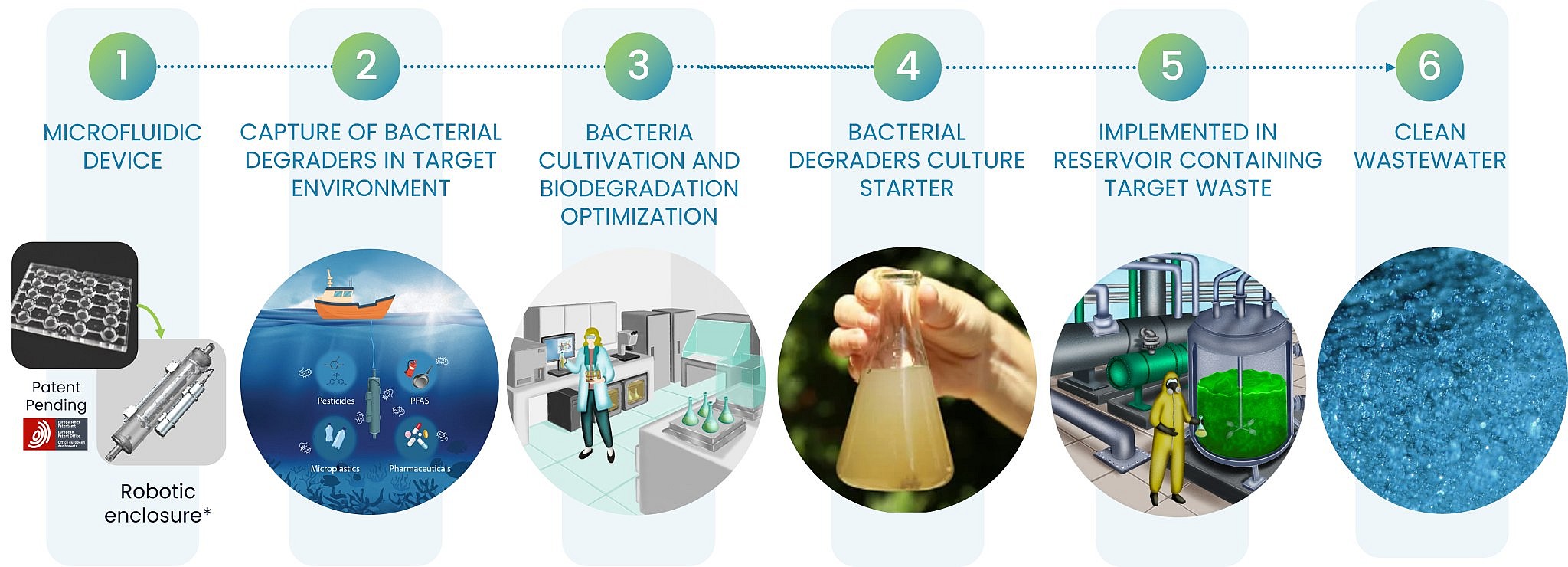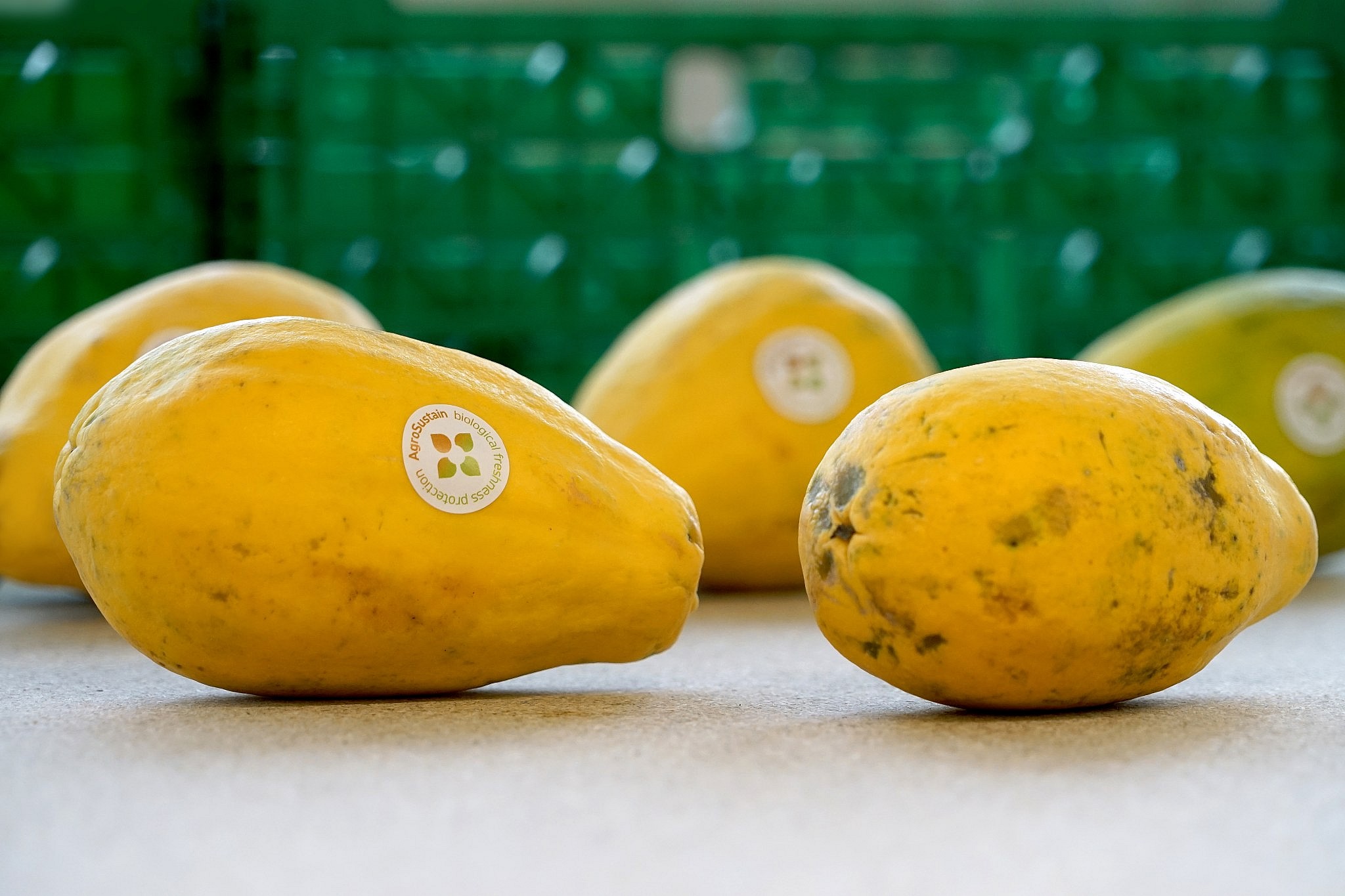- Get directions
- Leave a review
- Bookmark
- Share
- Report
- prev
- next
- Tuesday, September 24, 2024 @ 12:00 am
Industrial biotechnology promotes more energy-efficient and sustainable manufacturing processes as well as creating opportunities for reducing pollution, reusing waste and creating new products. It underpins a circular economy and a more sustainable chemicals industry which prioritizes protecting scarce natural resources. New bio-based products and processes have far-reaching and disruptive impacts on many aspects of everyday life.
Switzerland has a strong and well-organized industrial and academic base in biotechnology for biopharmaceutical products. The situation is different with regard to applications and players in industrial biotechnology, although many multinational and small companies are successful in this sector. Pioneering early-stage Swiss companies which presented at the 2024 Swiss Biotech Day are outlined below. They can be seen as case studies for the development and wider application of industrial biotech.
Longer shelf-life for foods and plants
AgroSustain develops biostimulants, biofungicides and coating products, including a plant-based edible coating which preserves the quality of fresh fruits, vegetables and cut flowers and reduces food waste. For example, avocados may have a three-to-five-week journey by sea from South America to the EU, followed by several weeks at a local distributor for preparation and shipment to their final destination - AgroSustain's coating can protect the avocados throughout this journey. The coating is already commercialized in Switzerland and is registered and IP protected in ten countries. Typical regulatory challenges are not relevant in the EU as the ingredients used are already regulated under the European food additives framework.
AgroSustain supplies a concentrated solution of the coating; when this is diluted and applied by bathing or spraying it cannot be perceived in sensory tests. Due to the physicochemical properties of the coating, crops continue to ripen at a similar speed as non-treated ones, while losing less water and having a longer shelf-life.
Reducing cost and waste in production
INOFEA has developed tailor-made enzymes for high value therapeutic production processes such as manufacturing mRNA vaccines. By immobilizing enzymes on carriers, the enzymes can be reused in continuous manufacturing, which reduces costs and waste. Immobilized enzyme processes can produce two to three times more mRNA than soluble enzyme processes using the same amount of template and units of enzyme. During the Covid pandemic, one dose of vaccine cost around USD 10 but the cost has now been reduced to around USD 2 per unit. The technology can also be used in downstream purification steps which contribute to more than half of total costs of goods today.
One of the key differentiators of INOFEA’s technology is the IP protected layer which allows enzymes to maintain activity under a range of conditions and enhances the stability of enzymes even under harsh process conditions. Beyond in vitro transcription processes, INOFEA also supports manufacturers of antibody drug conjugates, and small molecule APIs. The company is currently in a financing round B+ to raise USD 1.5 to 1.8 million - more than half is already secured to finance the further development of the proprietary enzyme platform.
INOFEA empowers mRNA manufacturing

De-risking the process of developing immobilized enzyme
inSEIT has developed a workflow that is powered by data and bioinformatic tools related to enzyme characteristics (how it behaves in a dynamic environment and how it interacts with different materials). Two limitations in industrial biocatalysis are insecurity in the development of biocatalysts and the compatibility of the enzyme catalysts with chemical synthesis. Enzyme engineering and de novo enzyme design are already exploring data-driven development; enzyme immobilization can broaden the applicability of biocatalysts but this remains a trial and error approach. The immobilization process can be tailored to the specific enzyme. The service can also be provided if the enzyme structure is not known.

Lowering energy consumption of bioreactors
NeoCarbons has developed a light distribution device for bioreactors which improves energy efficiency and productivity, and lowers production costs. The light distribution in the entire reactor volume improves efficiency by a factor of 200 compared to surface irradiation using sunlight or external artificial light.
The goal is to substitute fossil-based Scope3 entrants with a wide variety of price-competitive high-quality products by recycling carbon dioxide with micro-algae farmed in their highly productive photobioreactors. The volume agnostic upgrading of bioreactors, with a patented light distribution system, are powered by LEDs and customized to specific wavelengths and power needs, including the possibility of pulsating light. One example of the application of NeoCarbons’ technology is the improved production of spirulina (blue-green algae) for dietary supplements.
Sustainable treatment of chemical waste
CellX Biosolutions has developed an innovative microfluidic device designed to capture specific high-performing bacteria from any aqueous environment. Traditional methods to treat chemical waste, such as burning, are expensive and not sustainable. A number of alternative bio-based methods are emerging but the challenge is to find and implement the best performing approaches.
CellX’s device attracts and traps microorganisms capable of degrading particular pollutants within the microfluidic chip. These bacteria are then cultured in larger volumes back in the laboratory. Currently, the company is focusing on pharmaceuticals, PFAS, pesticides, and microplastics, for which it has identified candidate bacterial degraders. It is looking at how these can be scaled from lab to industry levels while maintaining the degradation function and stability.
Target degrader bacterial communities will be licensed in the future but currently customers are offered the ability to discover and assemble specific degrader communities tailored to their needs. CellX Biosolutions is particularly focused on PFAS degradation and is collaborating with the water supply authority of Zürich city on this front. Their second focus is on the degradation of pharmaceutical waste, currently under discussion with a pharmaceutical company.
CellX Biosolutions is raising a pre-seed round of 500,000 CHF by November 2024 and is seeking industrial partners for pilots, partnerships, and investments.

Speed up production of proteins
Lock and Key Biosciences fast-tracks challenging protein expression. Bacterial cells excel as factories of recombinant proteins but lack specific mechanisms to store and protect such exogenous materials; their protein production is often limited by aggregation, misfolding, degradation, and toxicity towards the host cells. Lock and Key’s ProteoShell System expedites protein production in E. coli by enclosing recombinant proteins in protective storage compartments during the expression process. ProteoShell-protected proteins offer further advantages for down-stream processing, including a buffer-based purification procedure, and enhanced stability, cooperation, and separation of enzymes in biocatalytic applications.
The trial kit offered by Lock and Key Biosciences allows customers to test the technology for their specific needs, and license only upon successful implementation.

Key challenges for early-stage industrial biotech companies
Each year, the Swiss Biotech Association hosts the Swiss Biotech Day, a premier biotechnology conference attracting around 2,500 professionals from the global life sciences community. At this event, expert discussions have highlighted the key challenges faced by early-stage industrial biotech companies in Switzerland:
Technology and Innovation
A recurring theme is the importance of flexibility and adaptability (e.g. enzymes that can be immobilized meeting quite different customer needs). Many of the companies demonstrate their strength in business model innovation as well as the underlying technologies.
Breadth of application
This is particularly important for environmental biotechnology where solutions need to operate in different and difficult contexts (e.g. bacteria in any type of aqueous environment; compatibility with many types of enzymes; ability to operate in harsh conditions)
Market development and customers
The companies illustrate the diversity of markets served by IB such as productivity of bioreactors, food loss reduction, PFAS removal, among others.
Many of those that have already achieved some growth, based on a strong track record within the medical and pharmaceutical markets – this represents a real opportunity to build on Swiss pharmaceutical strengths and apply these to environmental applications
Funding
While most of the companies have secured some seed or pre-seed funding, there are clearly fewer funding sources available for environmental biotechnology compared to the extensive VC, corporate and other funders in medical applications
Scale-up/industrial partnership
Several companies referred to the challenge of moving from laboratory scale to industry scale. Interestingly, several pitching companies provided models which enable customers to test a solution and fast-track to future scale-up. The examples highlighted the importance of detailed know-how within a particular sector through industrial partners for piloting, partnership and investment
Join us in shaping the future of Swiss industrial biotech
The Swiss Biotech Association is well positioned to drive the development of industrial biotechnology in Switzerland building on its proven success to advocate for medical biotech. Now it created an industrial biotechnology chapter to break down barriers between centers of excellence, expand expertise, foster collaboration, and drive innovation in this sector. As part of this initiative, industrial biotech will again be represented at the Swiss Biotech Day 2025. If you're passionate about driving progress in this field, we invite you to contact us and help forge the future of Swiss industrial biotech together.
The authors

Hans-Peter Meyer
Expertinova AG
SATW Member Executive Committee

Anne Marie de Jonge–Schuermans, PhD
Global Head Biologics & Injectables Operations, Sandoz
Vice President, Swiss Biotech Association

David Lyon
Development Director, Pheida (

